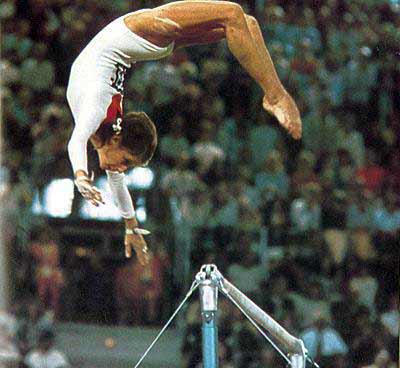The contrast and conflict presented in the first scene through the argument of Antigone and Ismene shows us much about their characters. Each sister depicts a different perspective on the subject at hand: the burial of their brother, which has been outlawed under penalty of death. Though each conclusion can be rendered reasonable, this conversation also depicts their flaws, and even perhaps the reasons for the development of these flaws.
Antigone is a very strong woman. She sees in black and white, has her convictions, and acts upon them. Ismene, on the other hand, is more complacent than her sister. It is not, perhaps, that she doesn't distinguish right from wrong, but rather that she is unwilling to act upon those convictions. Her most prominent character flaw is that she has no backbone. She is simply accepting of the conditions presented to her. It could be argued that Antigone's character flaw is her sense of superiority. She places herself above the law; however, this not really born out of self, but more so of necessity. It is her nature to do what is right, and is thus made to make an impossible decision: should she follow the law of Creon or the law of the gods. She chooses to obey the gods and I completely agree with her. She realizes that the human law is not always going to be good and right. None of this is to impugn Ismene. She acted as many of us would -- to preserve her life. I think that it is simply fascinating that in one simple conversation between sisters, Sophocles can examine the issue of right versus wrong, of right versus easy, of survival versus sacrifice; and, that he was able to examine so completely both perspectives.
Sunday, January 25, 2009
Monday, January 12, 2009
Thoughts on the Life and Death of Ivan Illych
Ivan Illych's life was a perfect model in the eyes of society. It was materialistic and proper. However, it was emotionless. He showed no real concern for others and thus received none in return. His friends were not truly friends and even his relationship with his wife was rather platonic. The only emotion and concern he really had was always always connected to himself. Having lived putting himself first, it is rather appropriate that he should die alone and rather dimminished. If he had put himself last during his life and loved, he would have died with love and a release from his suffering. Ivan Illych's death confronts the concept of change. I think the commentary here is that Ivan couldn't change until he faced death. People don't like to change because it is different and it scares them; it makes them uncomfortable -- and Ivan's life was extremely comfortable, there's no arguing that!It took a change that was as big, as strong, and as out of control of humanity as death to make Ivan change himself. This change was a true transformation even though he didn't have the chance to act on it, and that is the core problem. His heart changed, but he was unable to leave this change behind him in the world when he passed on. So the question in the end is: if this cycle continues, as it very well will, and the people in society don't change, how can we implement change in society as a whole?
Subscribe to:
Posts (Atom)





